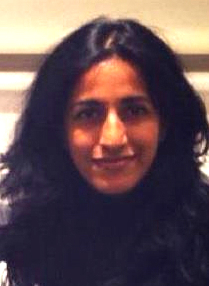
Institute for Ethics & Emerging Technologies, 9 April 2012
In just three decades between 1990 and 2020, the internet will have grown from linking just a few experts in labs to connecting the entire human species through computers and mobile phones as well as billions of objects into an “Internet of Things,” a seamless web of infinite data. As a result, we have transitioned from the familiar Information Age into the uncertain Hybrid Age, an era in which technology is rapidly becoming ubiquitous, intelligent, and social, radically transforming our societies, markets, and governance.
Intelligent Energy & Infrastructure
Sustainability has become the dominant theme of the early 21st century. To successfully transform societies toward lower consumption and greater productivity requires, first and foremost, increasing our urban intelligence through smart grids that connect offices, homes, and traffic lights into an energy saving and generating eco-system. “Smart cities” are emerging all over the world, from greenfield developments such as Songdo in Korea and Tianjin Eco-City in China to retrofit districts in Stockholm, Hamburg, and Rio de Janeiro.
Intelligent Markets & Consumers
Innovation is once again a buzzword among leading corporations, yet many have failed to realize that the future lies not just in innovating products but, more importantly, in innovating experiences. Based on growing online interaction, consumers now expect a real-time, personalized, and social experience as part of the every product offered. Augmented reality, collaborative consumption, game-ification, and sensors embedded in apparel are all examples of how products are being tailored to location, personality, and preferences, while also allowing consumers to share feedback through social networks.
Intelligent Work
Corporate management faces dramatic challenges today: an aging workforce, talent shortages, and rising competition from emerging markets. The only way to maximize the skills and ambitions of employees is to enable systems of collaboration called “virtual teams” irrespective of division or geography. The new “soft architecture” of the workplace includes Telepresence monitors, social robots, and software platforms which allow for virtual networked cooperation among globally mobile employees and contractors.
Intelligent Living
In an age of information overload, we now need interactive machines to help us analyze and extract maximum value from all the data we collect about ourselves. From the smart home to the smart car, we are moving beyond a one-way relationship with technology towards interacting with machines using natural gestures and voices, and even trusting them with personal information. The most significant impact of such machines will be felt in healthcare, where data collected from wearable devices will monitor everything from our blood pressure to our moods. In order to partake of the intelligent revolution, each of us must consciously fashion our daily lives and personal living spaces to accommodate and take advantage of new data streams and applications rapidly coming to market.
Intelligent Governance
Social networks have unleashed citizen revolutions from Barack Obama’s presidential campaign to the Arab Spring in the Middle East. Rather than succumb to waves of unforeseen pressure, clever mayors from New York and Paris to Dubai and Singapore are deploying elaborate digital strategies to streamline government services and create citizen engagement platforms. An entirely new kind of governance is emerging: through partnership with private sector entrepreneurs, software programmers, and bottom-up social movements, government increasingly operates through interactive dashboards that identify policy and investment needs and respond efficiently.
Ayesha Khanna is Managing Partner of Hybrid Realities, a consulting firm specializing in scenario analysis, technology trends, future cities, and geostrategy. She is also Founder and Principal of the Hybrid Reality Institute, which explores human/technology co-evolution and its implications for society, business and politics.
Phi Beta Iota: Elegant and worthwhile but missing the larger point, that all of these applications of technology are still controlled by the status quo ante powers, doing the wrong things righter, not the right thing. Absent an autonomous Internet and Open Everything, the Internet will be degraded the way Occupy was so quickly degraded.
See Also:
THE OPEN SOURCE EVERYTHING MANFESTO: Transparency, Truth & Trust
2012 PREPRINT FOR COMMENT: The Craft of Intelligence
- Advanced Cyber/IO (789)
- Autonomous Internet (135)



